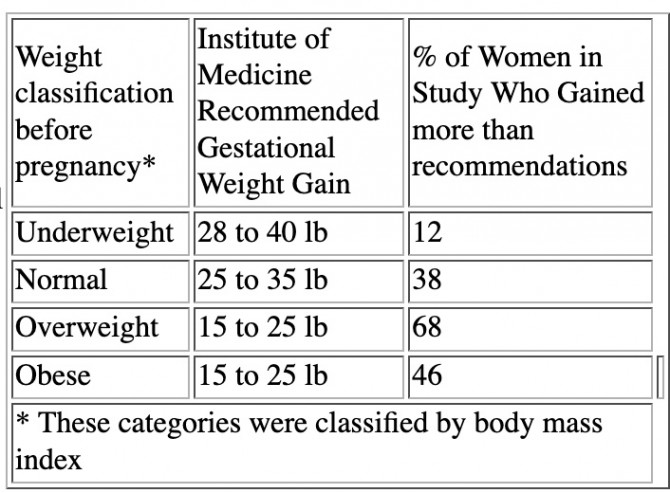Excessive weight gain during pregnancy is now major contributor to obesity in U.S., Cornell-led study finds
By Susan S. Lang
Women who gain more than the amount recommended during pregnancy are four times more likely to be obese one year after giving birth compared with mothers who gain within the recommended range, says a Cornell University nutritionist.
As a result, she concludes, excessive weight gain in pregnancy is significantly contributing to the skyrocketing levels of obesity in the United States.
The study of weight gain in 577 pregnant women found that more than 40 percent of women surveyed gained more weight during pregnancy than is recommended by the Institute of Medicine of the National Academy of Sciences. Furthermore, one-fourth of all the pregnant women studied were at least 10 pounds heavier one year after giving birth.
"I don't think anyone would have guessed that the effects of gestational weight gains are as great as they seem to be," says Christine Olson, professor of nutritional sciences at Cornell and the lead researcher in the National Institutes of Health-funded study. "Researchers had thought it was just a minor contributor to the obesity problem in this country."
In the study of childbearing women, obesity was defined as a body mass index (BMI) – a calculation based on the relationship of weight to height – greater than 29. A BMI of 19.8 to 26 is considered normal. Obesity dramatically increases the risks of chronic health conditions such as diabetes and cardiovascular disease.
The Institute of Medicine reports that the evidence suggests that having a baby adds an average of 2.2 pounds to a woman's weight a year after giving birth. Olson found women in the study gained an average of almost 4 pounds. "But even more disturbing," she says, "was the finding that 56 percent of the new cases of obesity in our study could have been prevented if the women had stayed within the recommended ranges for weight gain during pregnancy."
Researchers at the Research Institute of Bassett Healthcare in Cooperstown, N.Y., monitored the weight of mostly rural and white women from early pregnancy to one year after birth. The results were presented to the Federation of American Societies for Experimental Biology meeting in San Diego in April and a more detailed paper has been submitted to Obstetrics & Gynecology . A report on the study is available on Cornell's Ask the Nutrition Expert website at http://www.cce.cornell.edu/food/expfiles/topics/olson2/olson2overview.html.
The findings come on the heels of a report issued by the Centers for Disease Control (CDC) drawing attention to U.S. obesity rates, which have risen by nearly 60 percent since 1991. Between 1998 and 1999, obesity climbed 6 percent nationally, affecting all regions and demographic groups. "Obesity is an epidemic and should be taken as seriously as any infectious disease epidemic," says Jeffrey P. Koplan, director of the CDC. Among women, federal statistics indicate that almost one-fourth of women 25 to 55 years of age are overweight and another quarter are obese.
Among the other findings from the Cornell/Bassett Healthcare project:
- Almost 38 percent of normal-weight women studied gained more than the 25-35 pounds recommended by the Institute of Medicine.
- About 68 percent of overweight women gained more than the recommended range of 15 to 25 pounds.
- About 46 percent of obese women gained more than 15 to 25 pounds. About 12 percent of the underweight women gained more than the recommended 28 to 40 pounds. This was the only group in which the majority (56 percent) stayed within the weight-gain range.
"These results suggest that pregnant women should make every effort to stay in the range of gestational weight gain recommended by the Institute of Medicine. It is best for both infants and their mothers," Olson advises.
Media Contact
Get Cornell news delivered right to your inbox.
Subscribe